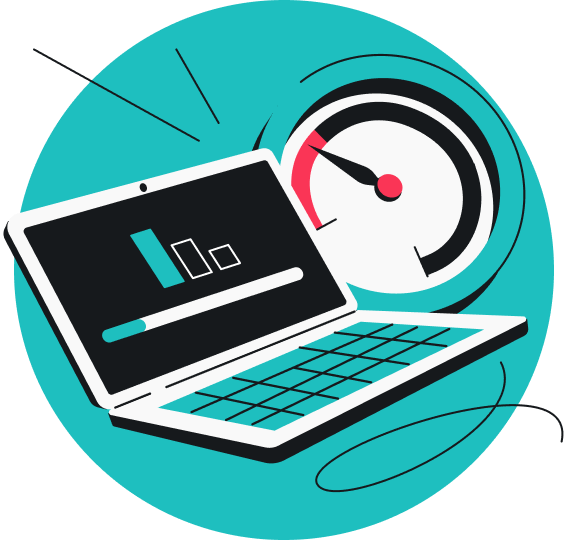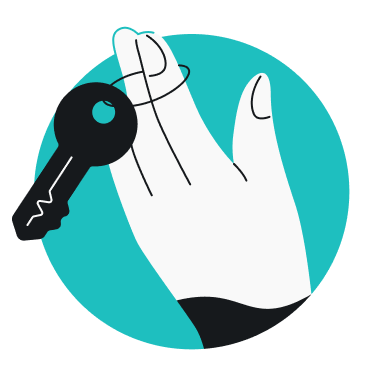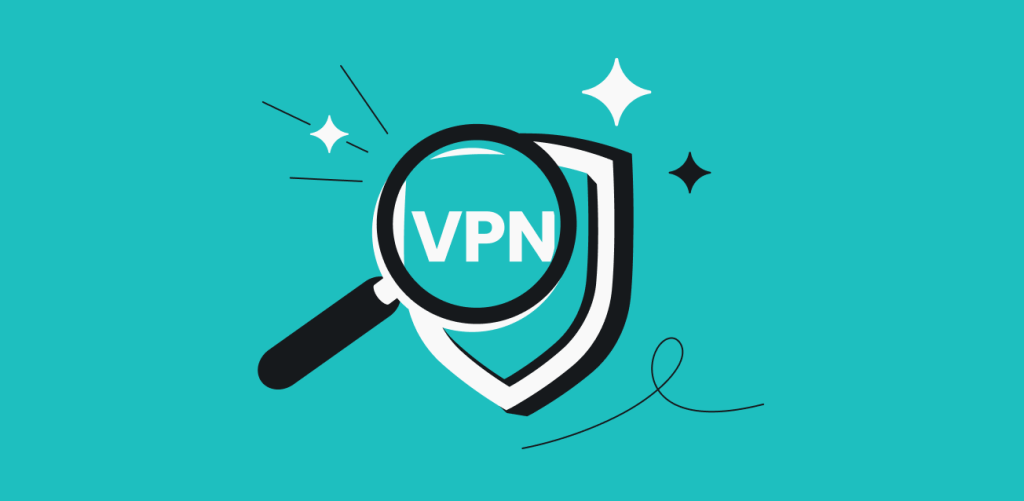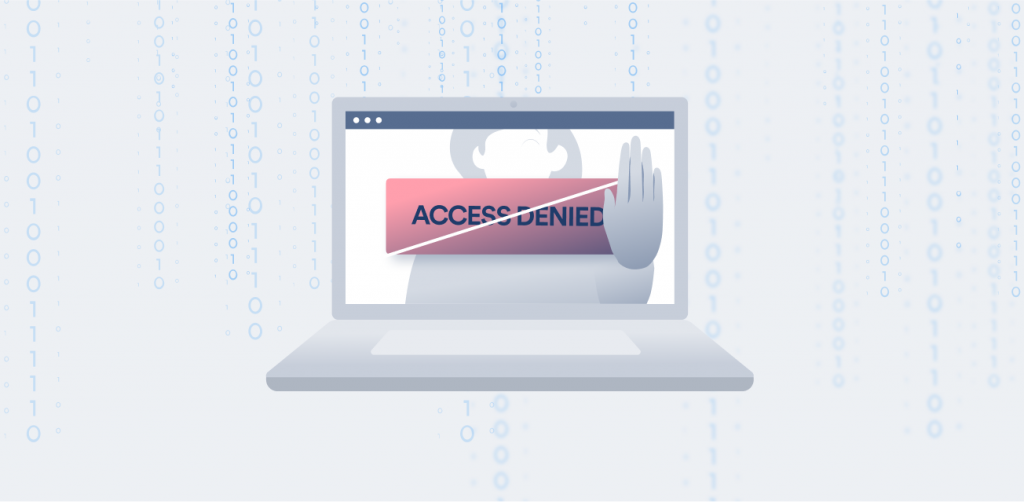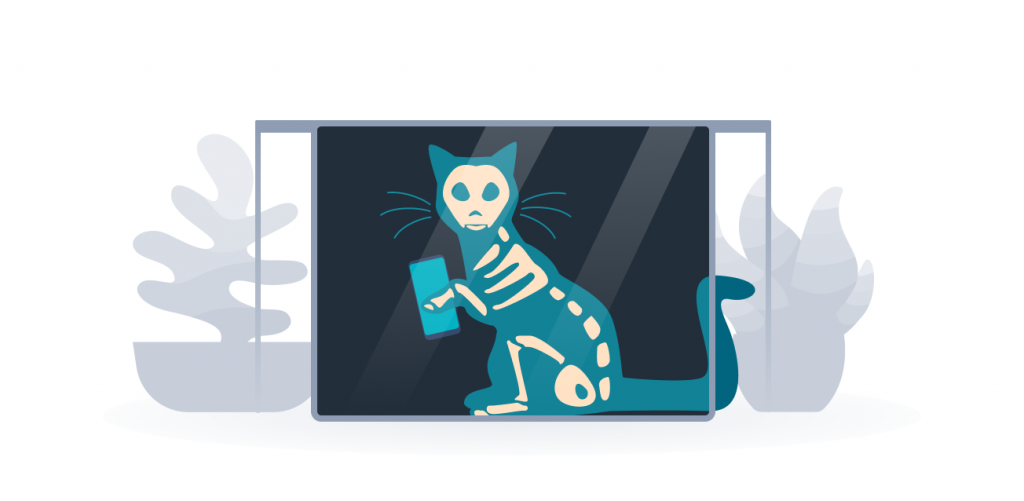You may be experiencing ISP throttling if your internet speeds are consistently slow during peak hours or when using data-heavy services like streaming or gaming — even if you’re paying for a high-speed plan. Common signs include frequent buffering, ongoing lag in online games, or slow downloads that noticeably improve when you use a VPN, since it masks traffic type from your ISP.
What is ISP throttling?
ISP throttling happens when your ISP (Internet Service Provider) deliberately slows down your internet connection. Instead of delivering the full speed your plan allows, the ISP limits your bandwidth under certain conditions.
Throttling usually targets specific activities rather than your entire connection. Streaming, online gaming, and file sharing are common examples, which is why web browsing may still feel normal while videos buffer or downloads crawl.
ISPs typically throttle traffic using network management tools that identify what kind of data you’re using and apply speed limits accordingly. This can happen during peak hours, after exceeding a data cap, or when using bandwidth-intensive services.
Unlike general network congestion — which affects everyone — throttling is a deliberate slowdown applied by the ISP and isn’t always clearly communicated to the user.
Disclaimer: Please note that using Surfshark services for any illegal activities is strictly forbidden and violates our Terms of Service. Make sure that any use of Surfshark services for your particular activities conforms to all relevant laws and regulations, including those of any service providers and websites you access using Surfshark.
Why do ISPs throttle your connection?
ISPs throttle internet connections mainly to manage network traffic and reduce strain on their infrastructure. During peak hours, slowing down high-bandwidth activities helps prevent congestion and keeps the network usable for everyone.
Another common reason is data caps. Some ISPs reduce speeds after you reach a monthly data limit, especially on cheaper or unlimited plans with fair use policies hidden in fine print.
Certain online activities are also more likely to trigger throttling. Streaming in 4K, online gaming, video calls, and file sharing all consume large amounts of bandwidth, making them prime targets for speed restrictions.
In some cases, throttling is also tied to business incentives. Slower speeds may encourage users to upgrade their plans or avoid activities that are expensive for the ISP to provide.
Common signs of ISP throttling
ISP throttling isn’t always obvious, especially since your internet may still work normally for basic tasks like browsing or messaging. The key is to look for patterns rather than one-off slowdowns.
One of the most common signs of throttling is inconsistent performance. Your internet may feel fast for basic browsing, but slow down significantly under stress.
Another red flag is when the slowdowns are predictable. If your connection gets worse at the same times each day — especially in the evenings — or after you’ve just used a lot of data, your ISP may be limiting your speed.
You might also notice streaming platforms automatically lowering video quality, frequent buffering, or unusually slow download speeds that fall short of what’s promised in your plan. When these issues happen regularly, throttling becomes a likely explanation.
How to find out whether your ISP throttles you
The most reliable way to check for ISP throttling is to compare your internet speeds with and without traffic masking. This helps reveal whether your provider is slowing down specific types of activity.
Step 1: Run an internet speed test
Start by running a speed test while connected to the internet normally. Test at different times of day and note the results, especially during activities that usually feel slow, such as streaming or downloading files.
Step 2: Connect to a reputable VPN
Next, sign up for a VPN (Virtual Private Network) service and download the app. A VPN encrypts your internet traffic, making it harder for your ISP to see what kind of data you’re using and apply targeted speed limits.
Step 3. Run the online speed test again
Run the same speed test while connected to the VPN. If your speeds improve or become more consistent, it’s a strong sign that your ISP may be throttling your connection. If there’s little to no difference, the slowdown may be caused by congestion, hardware issues, or other factors.
How to stop ISP throttling
While you can’t control how your ISP manages its network, there are several ways to reduce or avoid throttling. Some solutions address the root cause, while others help mask your online activity so speed limits are less likely to kick in.
Below are the most effective options, depending on your situation and internet habits.
Use a VPN
A VPN can help stop activity-based ISP throttling by encrypting your internet traffic. This means your online activity is secured and hidden as your device communicates with websites, apps, and servers around the world.
Because your traffic is encrypted, your ISP can’t easily see what you’re doing online — whether you’re streaming, gaming, downloading, or using other bandwidth-heavy services. And if your ISP can’t identify the type of traffic you’re using, it becomes much harder for them to selectively slow it down.
That said, VPNs aren’t a fix for every kind of slow internet. They won’t help if your connection is slow due to general network congestion, hardware issues, or data caps enforced by your ISP. However, when slowdowns are caused by activity-based throttling, a reliable VPN is one of the most effective ways to keep your speeds more consistent.
Monitor your data
If your ISP enforces data caps, monitoring your monthly usage can help you avoid sudden slowdowns. Many providers throttle speeds after you reach a certain limit, even on plans advertised as unlimited.
You can track your data usage through your ISP’s account dashboard, your router settings, or built-in tools on your devices. Keeping an eye on your consumption makes it easier to spot patterns and adjust your habits before throttling kicks in.
Reducing high-bandwidth activities near the end of your billing cycle can help maintain consistent speeds.
Switch your internet service provider
If throttling is a recurring issue, switching ISPs may be the most effective long-term solution. Different providers have different traffic management policies, and some are more transparent — or restrictive — than others.
Before switching, compare fair use policies, data caps, and real user reviews to see how an ISP handles heavy internet usage. If available in your area, options like fiber or 5G home internet may offer faster speeds and fewer restrictions than traditional connections.
Reach out to your government
In some regions, ISPs are required to follow net neutrality or consumer protection rules that limit how and when they can throttle internet traffic. If your provider isn’t being transparent about speed restrictions, filing a complaint may help.
You can contact your local telecommunications regulator or consumer protection agency to report persistent throttling or misleading advertising. While this won’t result in instant speed improvements, it can push ISPs to be more accountable and clearer about their policies.
Change your internet habits
Sometimes, small changes in how you use the internet can reduce the impact of throttling. Scheduling large downloads or updates during off-peak hours can help avoid slowdowns, especially in the evenings.
Lowering streaming quality, closing unused apps, or avoiding multiple bandwidth-heavy activities at the same time can also improve performance. While this won’t eliminate throttling entirely, it can help keep your connection more stable.
Can free VPNs stop throttling?
Free VPNs are unlikely to effectively stop ISP throttling. They usually come with limited bandwidth, crowded servers, and slower speeds, which can cancel out any benefit from traffic encryption.
Many free VPNs also impose data caps, making them unsuitable for streaming, gaming, or other high-bandwidth activities — the very situations where throttling is most noticeable. Some may even log user data or show ads to stay profitable.
While a free VPN might work for short tests, a paid, reputable VPN is generally a more reliable option for avoiding activity-based throttling in the long term.
Could there be other causes for slow internet speed?
Yes — throttling isn’t always the reason your internet feels slow. Common issues like weak Wi-Fi signals, outdated routers or modems, and too many connected devices can all reduce performance.
Background apps, software updates, or malware may also consume bandwidth without you noticing. In some cases, slow speeds are caused by temporary outages, maintenance work, or general network congestion in your area.
Before assuming ISP throttling is the cause, it’s worth checking your hardware, network setup, and device activity to rule out these factors. Consider starting with an antivirus software to check for malware.
Conclusion: throttling is common, but not unavoidable
Many ISPs manage traffic by slowing certain connections, but that doesn’t mean you’re stuck with poor speeds. By identifying the signs of throttling and understanding why it happens, you can take steps to reduce its impact — including using a VPN to help prevent targeted, activity-based slowdowns and keep your connection more consistent.
FAQ
Is ISP throttling illegal?
ISP throttling isn’t illegal in most countries, but whether it’s allowed depends on local net neutrality and consumer protection laws. Some regions require ISPs to clearly disclose when and how throttling is applied, while others give providers more flexibility.
Does bandwidth throttling affect mobile data?
Yes, bandwidth throttling is common on mobile data plans, especially after you reach a monthly data limit or during network congestion. Mobile carriers often prioritize traffic to keep networks stable, which can result in slower speeds for certain activities.
Are there justifiable cases of internet throttling?
In some situations, throttling is used to manage heavy network traffic and maintain service quality during peak hours. It may also be applied after data caps are reached, as outlined in an ISP’s fair use policy.
How can you tell if your ISP is tracking your activity?
If your internet speeds slow down during specific activities, such as streaming or gaming, it may indicate that your traffic is being monitored and categorized. Using tools that encrypt your connection, such as a VPN, can help protect your privacy and securely access your usual online services when you’re abroad.
